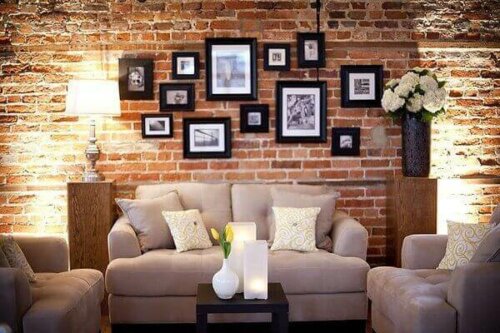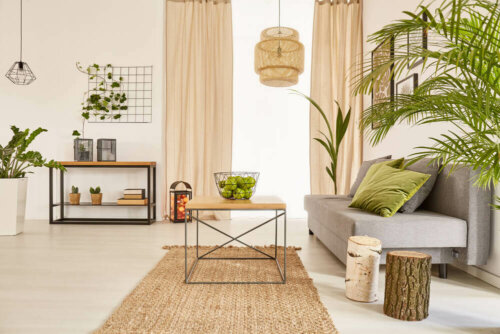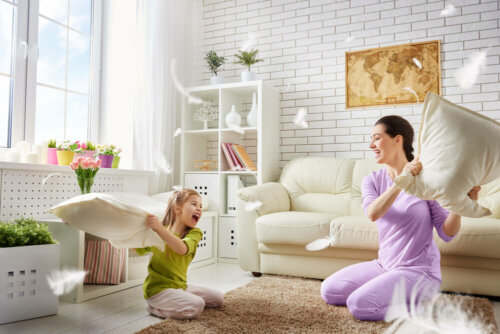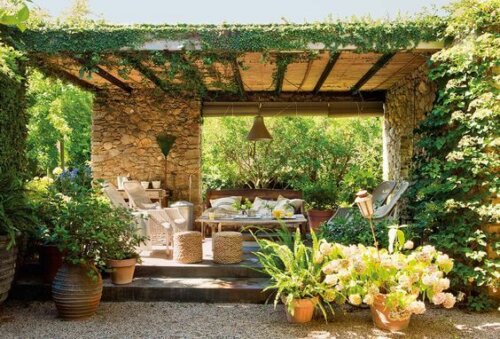The Relationship Between Your Personality and Home Decor

Your home should be a place that reflects your personality at all times. Hence, the importance of a relationship between your personal identity and your home decor.
All the rooms become a “stage” where you show off who you really are. You shouldn’t randomly choose the objects, colors, and furniture, but select those that demonstrate your taste and likes.
All this provides comfort, well-being, tranquility, and reason. However, you won’t feel the same if you just copy or try to reflect something you’re not. This will make you feel unhappy with your surroundings.
A home with personality

People don’t normally question the state of the house, if they actually like the decoration, or if they’re conformists and are used to having certain things around them.
The main objective is to identify your personality. However, to do this, you need to stop and assess what you need to achieve a goal. This requires time and dedication because, if you don’t have clear ideas, it’s worthwhile looking for inspiration by visiting home decor stores.
People tend to drift toward conservative thoughts. They follow stereotypes to save time thinking about what they really want. This is a trap people constantly fall into.
Each person keeps a treasure within them that they must show to others.
How to link your personality to your home

The link established by both concepts must be well defined. You can’t work on them without establishing some coherence and unity principles. Therefore, the goal is to create an ideal space with easy solutions. Let’s look at 5 steps to follow:
- Firstly, you have to analyze your taste and likes. Everything that pleases you should be a priority. For example, you may prefer putting paintings on the walls to show off artwork or you may simply hang up photographs of trips or family.
- You must be careful not to be too eclectic. Although, you can play around with the decoration, don’t turn the house into a testing site where you put in all kinds of random objects and colors. You should correctly define everything from the start.
- Colors you like should be included. You’ll have to determine your favorite ones and decide which to choose. The color that you most identify with should be used in the living room or the bedroom.
- The style for the decoration must be correctly defined, both in the designs and in the final aesthetics. The simple minimalist style is not the same as the classic or nineteenth century style.
- Prints are usually very popular for decorating interiors. If you choose a specific print, it should be one that best suits the whole home or room.
Personality and decoration – a spatial issue

The space you decorate is another identifying symbol. The “frame” where your personal life is has to be suitable. You must feel you’re in your happy place.
Some people prefer small and narrow apartments, while others value more open space, such as lofts or large mansions. In fact, the socio-economic situation of an individual has a strong influence on the type of housing they choose.
People who have a lot of money or prefer to be more opulent tend to buy houses that represent their social class. On the other hand, others settle for something simpler, functional, and basic.
Are you proud of your home?

A question that you should ask yourself is whether you’re proud of your home – does it really represent you? You probably haven’t stopped to think if the items you have are the ones you really want.
It’s also true that, throughout life, new experiences and changes in our personality arise. This may lead to changes in your decor style.
All cited sources were thoroughly reviewed by our team to ensure their quality, reliability, currency, and validity. The bibliography of this article was considered reliable and of academic or scientific accuracy.
- Quan, Diana: El paraíso es tu casa, Barcelona, Penguin Random House, 2017.








